What Is Prostate Cancer?
The prostate is a small, walnut-shaped gland found in the male reproductive system. It plays a crucial role by producing seminal fluid, which nourishes and transports sperm. The health of the prostate is essential for male fertility and reproductive function.
Prostate cancer occurs when cells within the prostate gland begin to grow uncontrollably. In many cases, this cancer develops slowly and may stay confined to the prostate for a long time. However, some forms are more aggressive and can spread (metastasize) to nearby tissues or other parts of the body, such as the bones and lymph nodes.
Nature of Prostate Tumors
- Some prostate tumors remain localized, causing minimal symptoms and posing lower risks if detected early.
Others are more invasive, with the potential to spread beyond the prostate gland, requiring more intensive treatment.
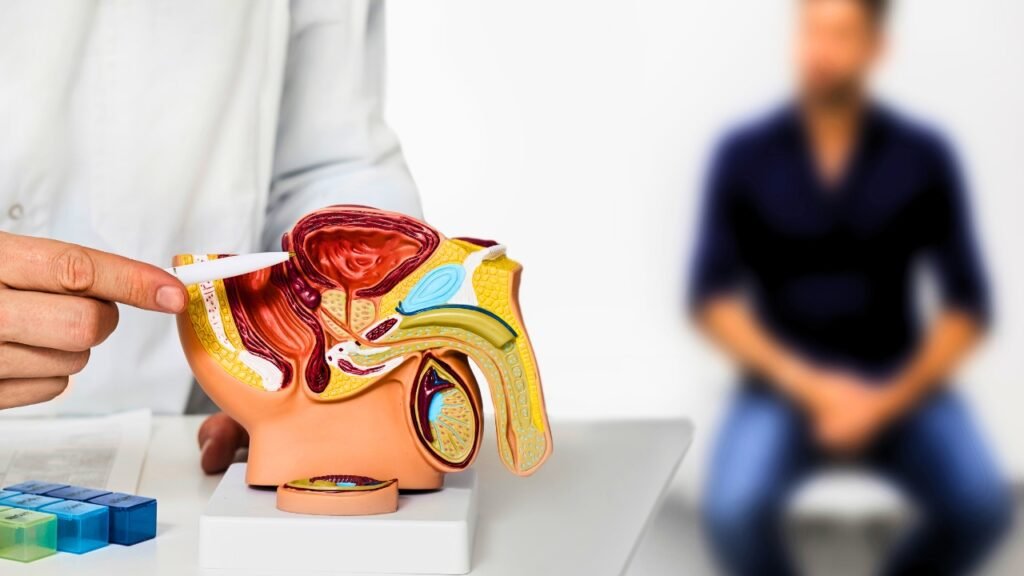
Causes and Risk Factors of Prostate Cancer?
What Causes Prostate Cancer?
Prostate cancer develops when normal cells in the prostate mutate and begin to grow uncontrollably, forming a mass or tumor. Over time, these cancerous cells can invade nearby tissues and potentially spread to distant parts of the body.
In Ayurvedic practice, a holistic approach is taken to understand and address the underlying imbalances—both physical and energetic—that contribute to disease. Your Ayurvedic cancer specialist will assess these root causes to create a personalized healing plan tailored to your constitution and condition.
Key Risk Factors That May Contribute to Prostate Cancer
1. Aging
The risk increases with age, particularly after the age of 50. Most cases are diagnosed in men over 65.
2. Genetics and Family History
A family history of prostate cancer or inherited gene mutations such as BRCA1 or BRCA2 may raise the likelihood of developing the disease.
These genes are also linked to a higher risk of breast cancer, making shared family history a significant factor.
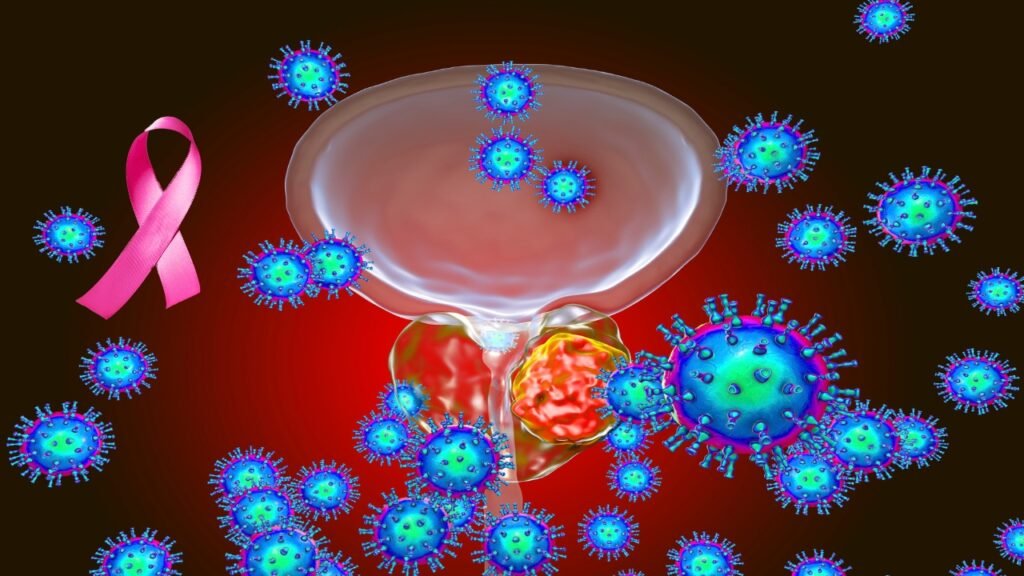
Different Types of Types of Prostate Cancer?
Prostate cancer is not a single disease; it includes several different types, each originating from different cells within or around the prostate gland. While most cases are of a common type, others are rare and may behave more aggressively.
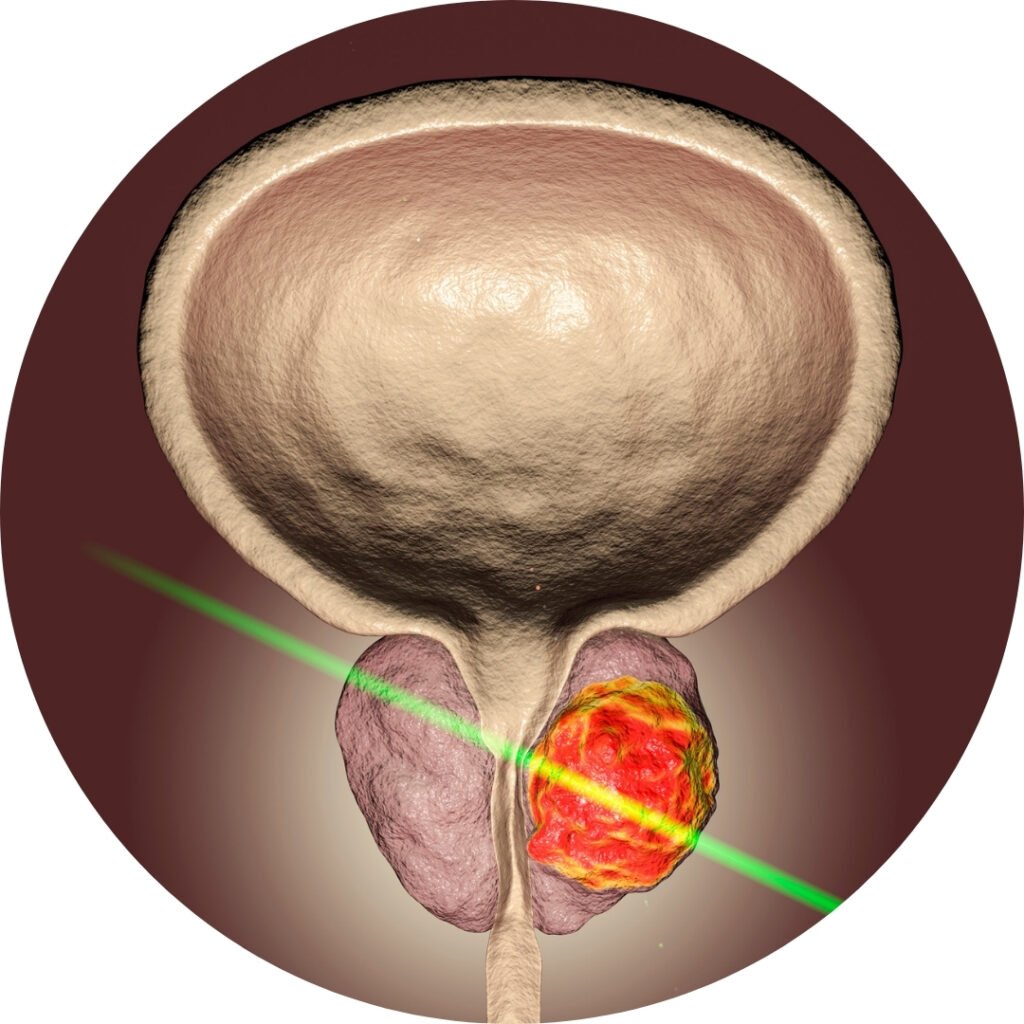
Adenocarcinoma
Adenocarcinoma originates in the glandular cells of the prostate—the ones responsible for producing seminal fluid. It accounts for more than 90% of prostate cancer cases. There are two main subtypes:
Acinar Adenocarcinoma:
Ductal Adenocarcinoma:
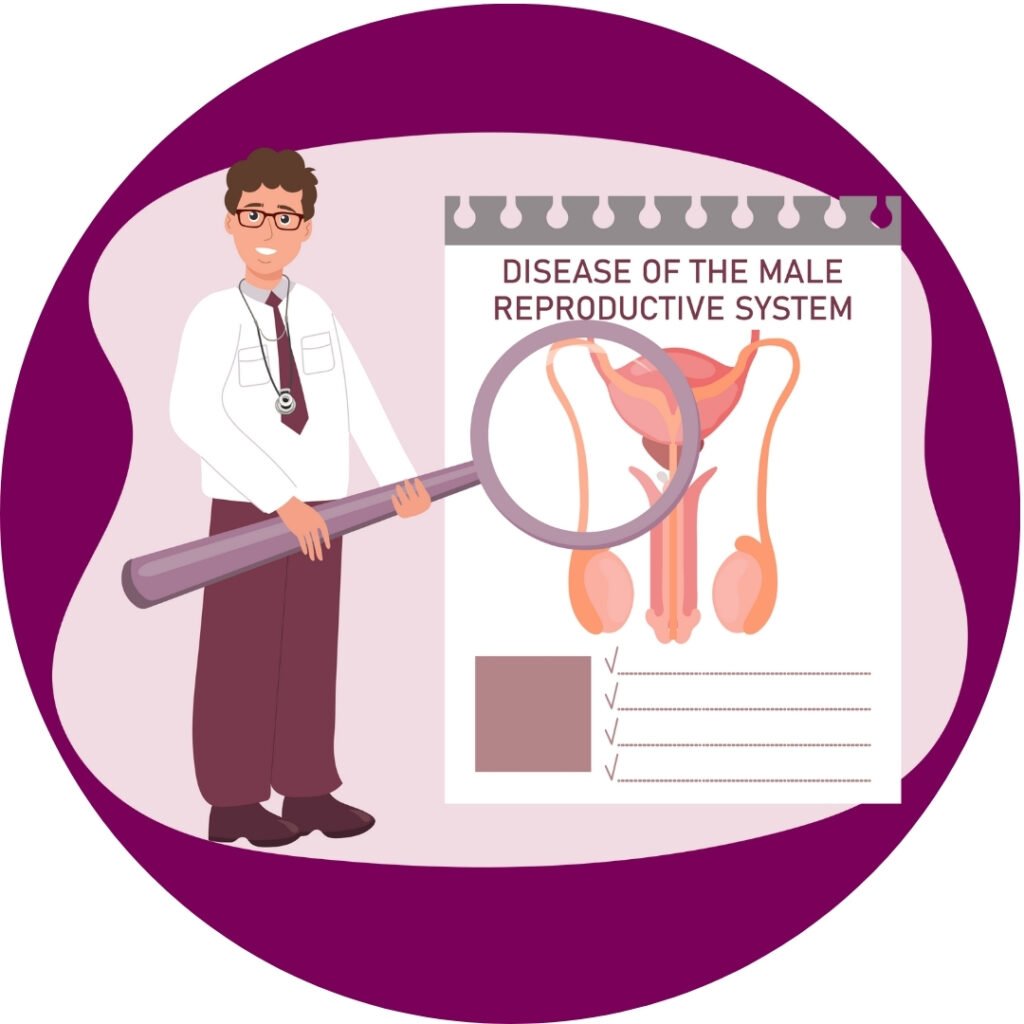
Small Cell Carcinoma
This is a rare and aggressive type of prostate cancer. It starts in small round neuroendocrine cells and typically grows and spreads much faster than adenocarcinomas. It often does not produce PSA (prostate-specific antigen), making it harder to detect early through routine screening.
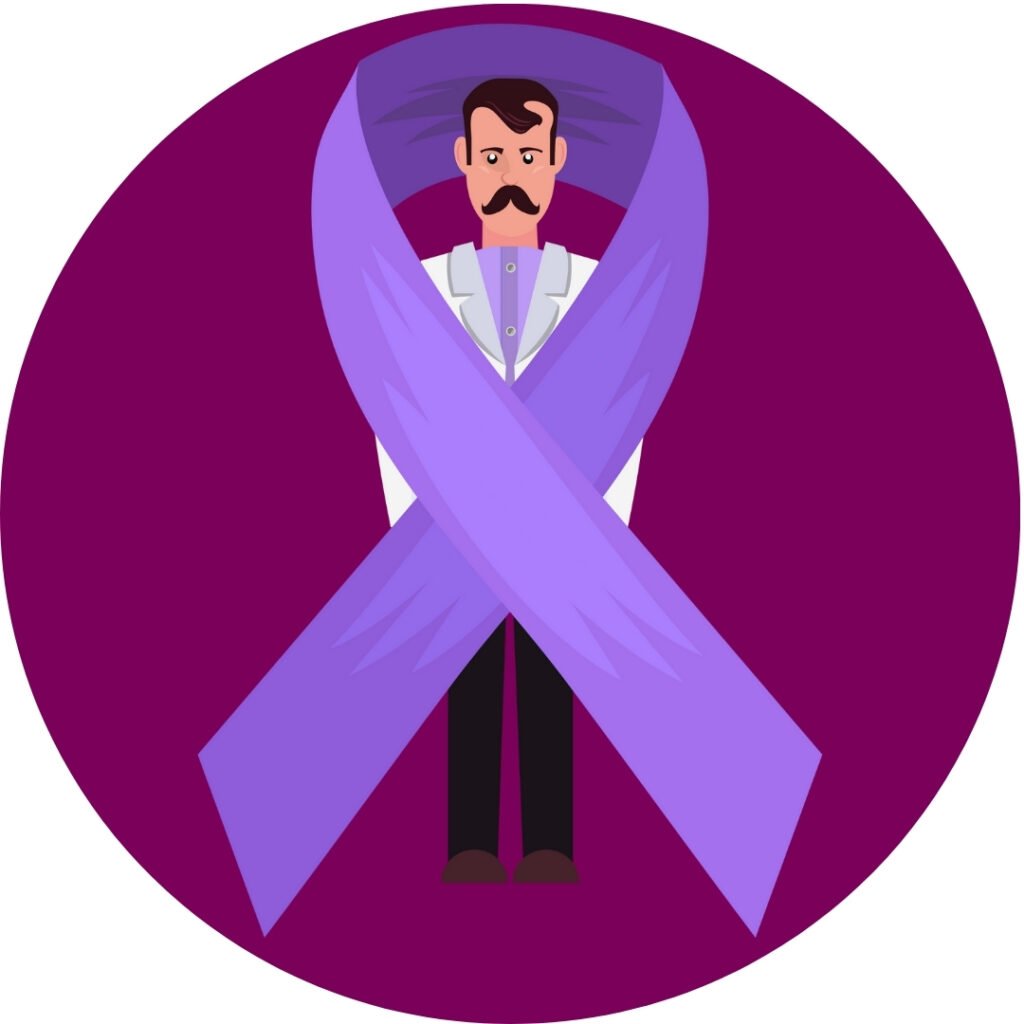
Squamous Cell Carcinoma
Originating from the flat squamous cells that line the prostate, this type is uncommon and tends to be highly aggressive. It does not produce PSA and usually shows rapid progression.

Transitional Cell Carcinoma
This cancer usually begins in the urethra or bladder but can sometimes affect the prostate. It is considered rare when found primarily in the prostate and may behave differently from typical prostate cancer.
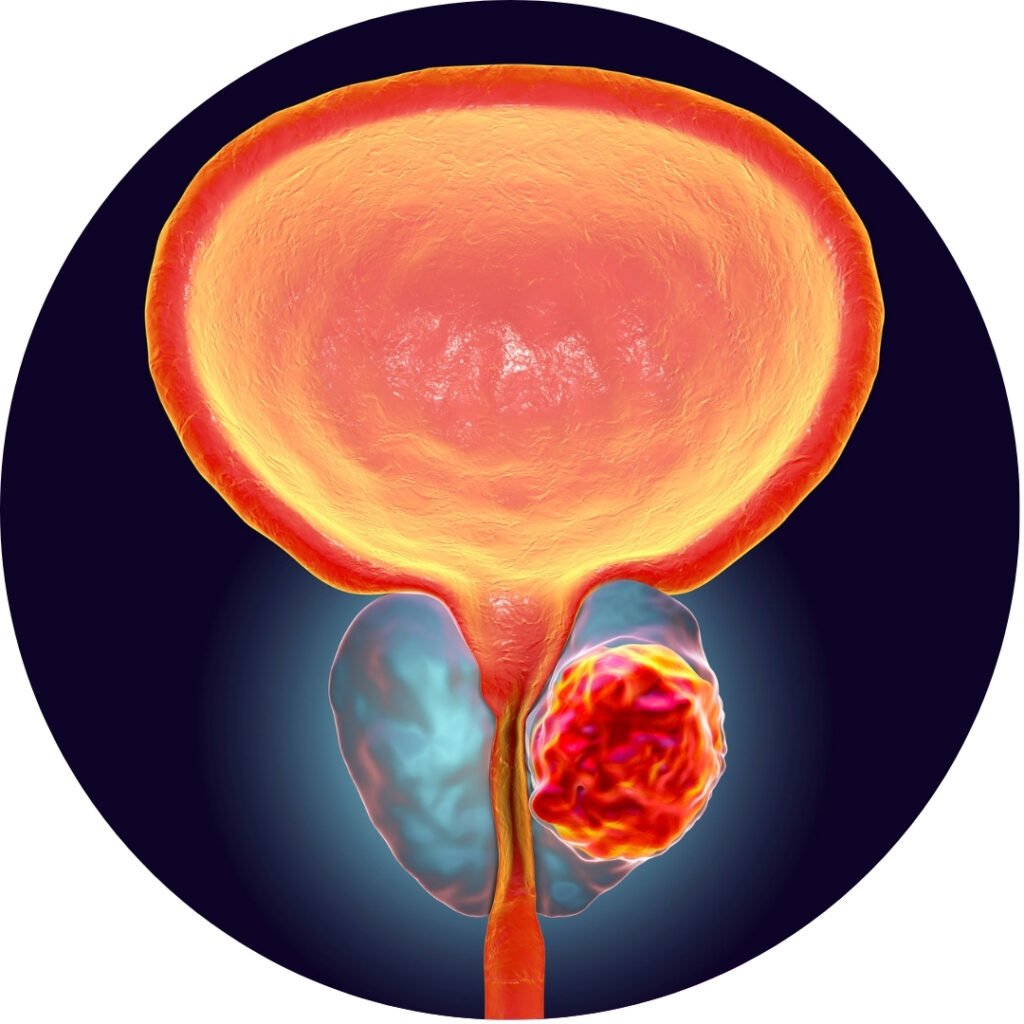
Neuroendocrine Tumors
These tumors develop from neuroendocrine cells, which are hormone-producing cells scattered throughout the body, including in the prostate. Some forms are small cell variants, while others may be less aggressive. They are typically resistant to hormonal therapies used for other prostate cancers.
What Are the Signs and Symptoms of Prostate Cancer?
In its early stages, prostate cancer may not present noticeable symptoms, making regular screening important for early detection. However, as the disease progresses, several signs may begin to appear, often related to urinary or reproductive health and sometimes indicating spread to bones or nearby organs.
Urinary Symptoms
Difficulty starting or stopping urination
Weak or interrupted urine stream
Increased frequency, especially at night
Pain or burning sensation during urination
- Blood in the urine (hematuria)
Reproductive and Sexual Symptoms
Blood in semen
Erectile dysfunction
Painful ejaculation
Musculoskeletal and General Symptoms
Bone pain, especially in the back (spine), hips, or ribs
Unexplained weight loss
Fatigue and general weakness
A New Approach to Cancer Healing
at Raghavan Cancer Care
At Raghavan Cancer Care, treatment goes beyond just managing cancer — it’s a complete journey toward physical, emotional, and spiritual wellness.

Metabolic Healing
Dr. Raghavan follows a powerful method inspired by Dr. Thomas Seyfried, focusing on the unique way cancer cells use energy. By supporting the body through special approaches like a ketogenic diet, this method offers a fresh direction in cancer care rooted in metabolic understanding.
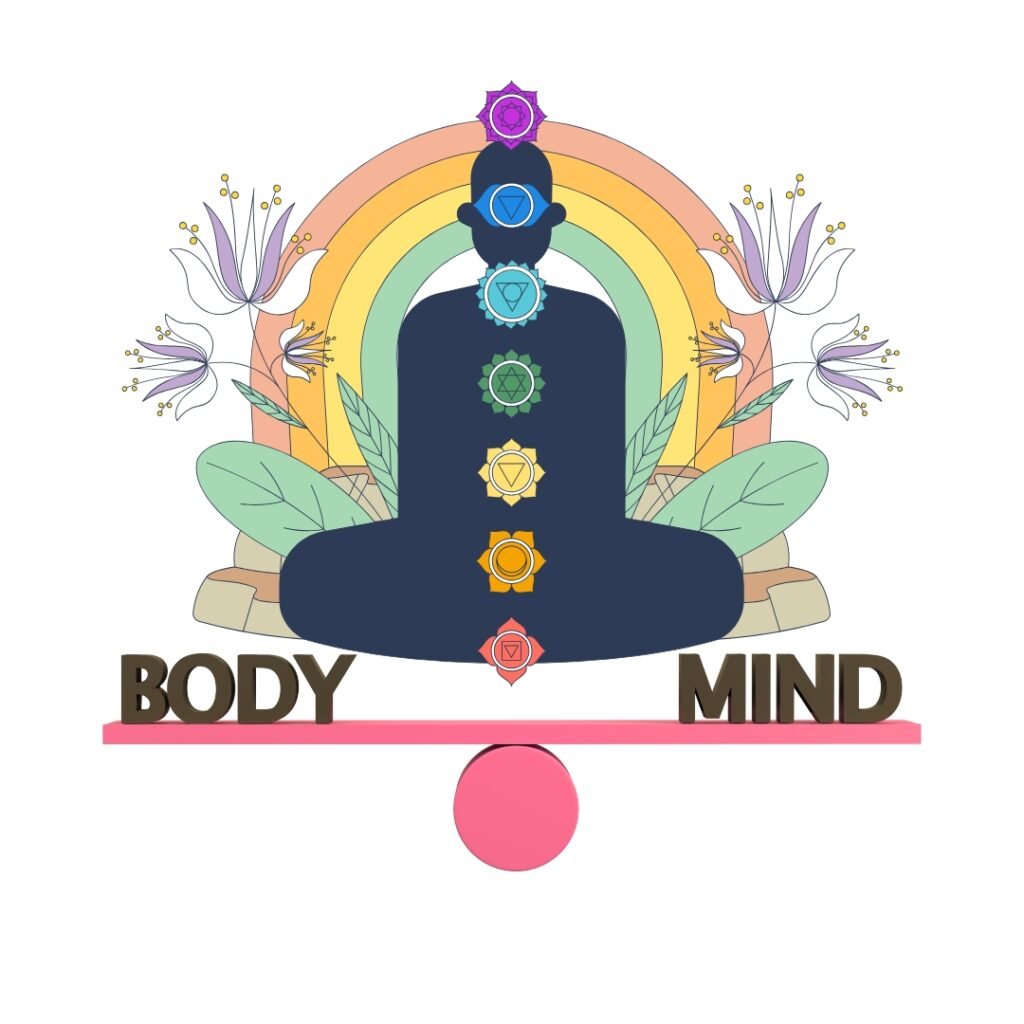
Mind-Body Balance
Taking inspiration from Dr. Joseph Mercola, our care also emphasizes the deep link between the mind, body, and spirit. At Raghavan Cancer Care, we believe that emotional and spiritual support is just as important as physical treatment in the healing process.

Food as Medicine
Dr. Wallach’s nutritional guidance has shaped our strong focus on diet. We promote clean, nutrient-rich meals and personalized nutrition plans to help strengthen the body and support recovery naturally.
